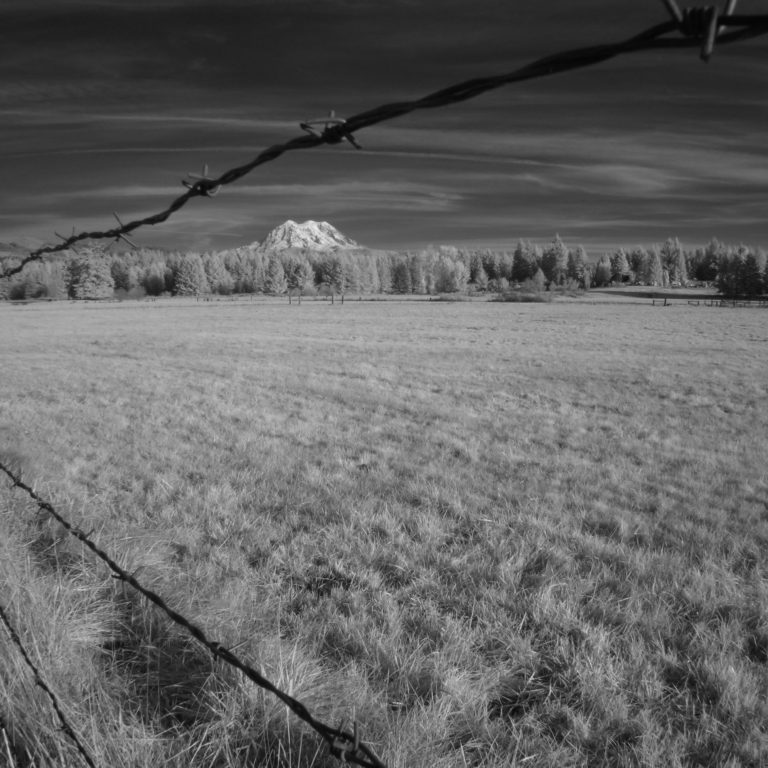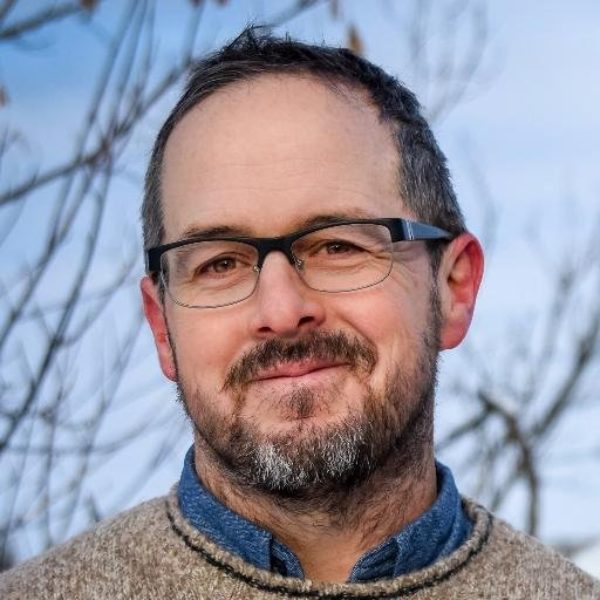
Image by Minette Layne/Flickr, Attribution-NonCommercial.
The Cultivation of Uncertainty
During the late winter and spring, I bounced around the state of Washington — from eastside to west and back home again to Spokane. I visited libraries (in Columbia City and Ritzville), schools (in Olympia and Twisp), cultural centers and community museums (on Whidbey Island, in Federal Way). Mount Rainier, the awesome power of the Pacific Ocean, channeled scablands that give us a lens into the chiseling power of history, the Columbia (rolling on): so many places, so many natural wonders.
I also wrote poems in the creative company of adults and kindergarten classes, at workshops surrounded by Bonsai trees and cinder blocks. I met the governor, and I went on a local TV show to talk about the importance of art. I drove thousands of miles and flew back and forth between GEG and SEA at least three times. Everywhere that I went, people met me with enthusiasm and treated me with kindness and tremendous hospitality. I am grateful and eager to continue that journey.
I believe in the importance of poetry; more generally, I believe in the importance of all of the arts and the humanities. I want to be precise, though, about what I understand that to mean. I don’t think that poetry is balm, something to relieve the pain of our troubled times, an anguished cry that sounds forth when the heart is troubled. Sure, like any of the creative endeavors we pursue (dance, song, painting), poetry can offer some song of solace or witness when the daily death toll seems too much, when the most recent brutal bend in the divining rod that searches out our faith in humanity (oh, please do not let it break!) horseshoes beyond a return to everydayness. This last summer had far too many instances when, I imagine, many of us felt that strain toward snapping. And sometimes, well-crafted words provided relief.
I think, though, that the arts work more subtly; their unknowability — the great mystery of how Cezanne captures a certain slant of light just so, how Faulkner takes us into the tortured psyche of Southerners trying to come to grips with the past (which is never the past), how Claudia Rankine simultaneously asks us to think about what poetry is while also asking us to consider the potential violence that might lurk in our definition. And so on: all of the wonderfully ambiguous and difficult to define gestures that art and, if we’re candid with ourselves, ethics and history and sociology (the humanities) urge us to inhabit.
As the political rhetoric of this election season becomes more and more shrill, I find myself more and more confident that the only thing that can save us is the cultivation of uncertainty, of questioning, of openness to the world, to the possibility of being mistaken. Is there a more poetic moment than the moment when someone says to someone else — with feeling, with sincerity — “I’m sorry. I was wrong. I’ll try harder to understand how you see things.” To be able to do that, each of us has to cultivate space for the mysterious, for unknowing. Call it an inner life; call it whatever works for you — perhaps it’s a space within us being made ready for the stars.
At the end of the second chapter of Walden, Henry David Thoreau, after laying out the economics of his venture in the first chapter and stating his reasons for going “to the woods to live deliberately,” writes this oft-quoted but mysterious passage:
“Time is but the stream I go a-fishing in. I drink at it; but while I drink I see the sandy bottom and detect how shallow it is. Its thin current slides away, but eternity remains. I would drink deeper; fish in the sky, whose bottom is pebbly with stars. I cannot count one. I know not the first letter of the alphabet. I have always been regretting that I was not as wise as the day I was born.”
Skip the opening line so easily printed on postcard and look at how, when Thoreau confronts the stars and eternity, he loses his ability to count, to communicate; he’s taken to a place beyond language, a place of unknowing, of uncertainty, that, it seems, is paradoxically closer to the wisdom that came with him into this world. Heavy stuff (I’m dizzy just writing about it).
And this space shares a kinship with what I feel sometimes in the air at the end of a good discussion about the arts, at the end of a community open-mic where the poets brought what mattered to them, at the end of a workshop where sometimes seven or eight of us, sometimes 30 or 40, sat around a table and tried to bring something into being. This fall looks to be very busy — my Subaru will zoom I-90 (and slow, slow, slow as the Seattle skyline comes into view) — and I’m glad for all of my future rendezvous with mystery, unknowing, that vast potentiality in which beautiful things can be made.
